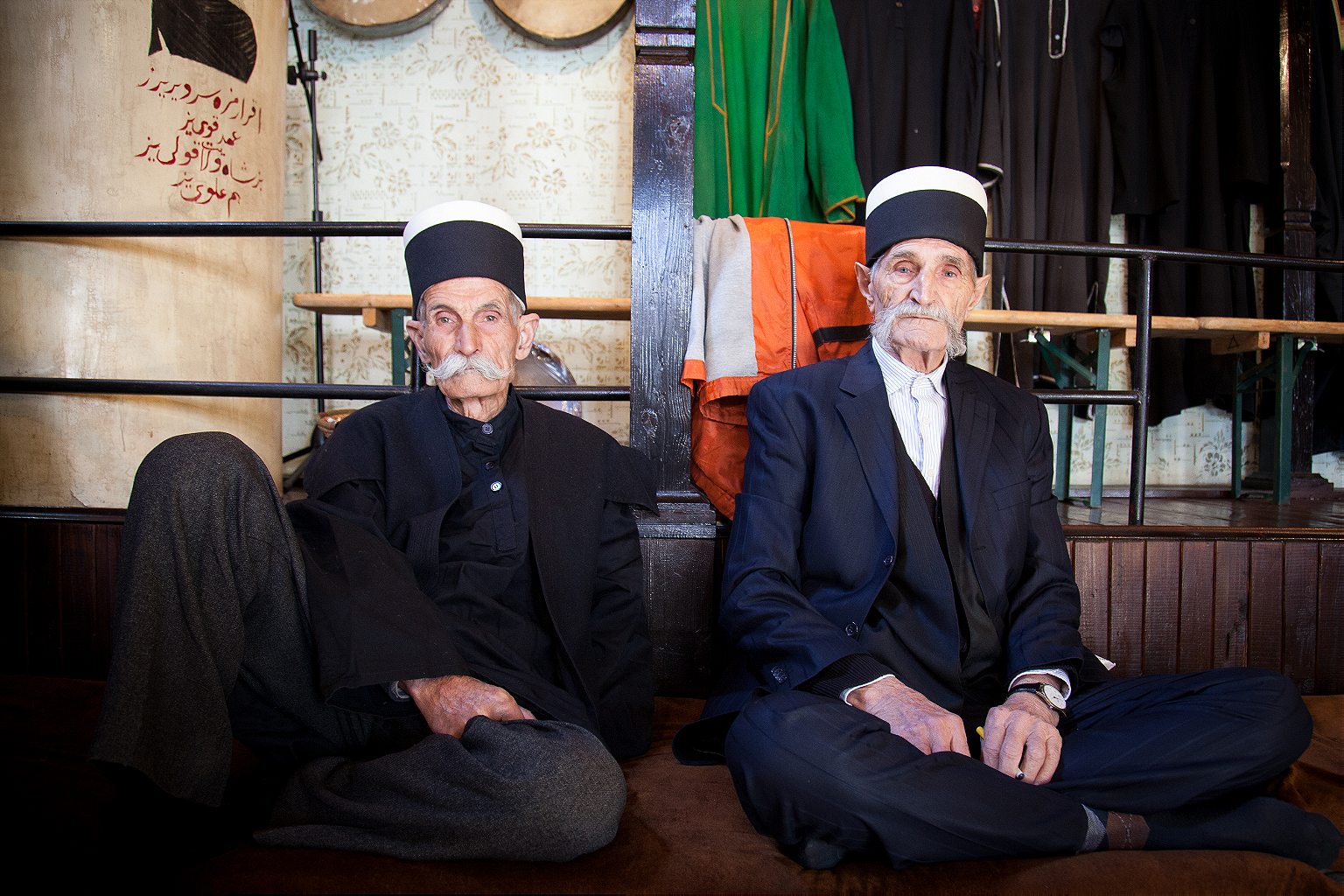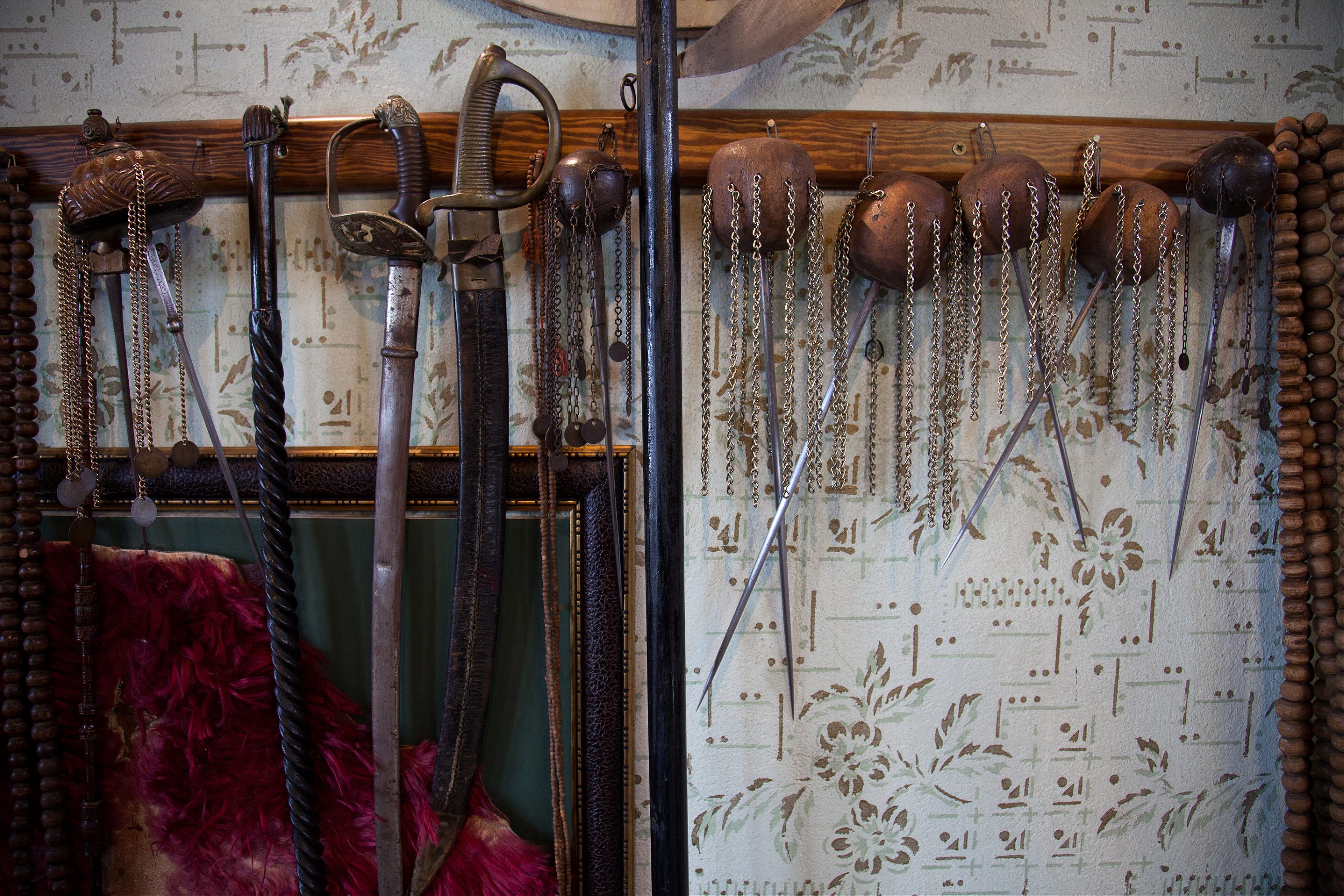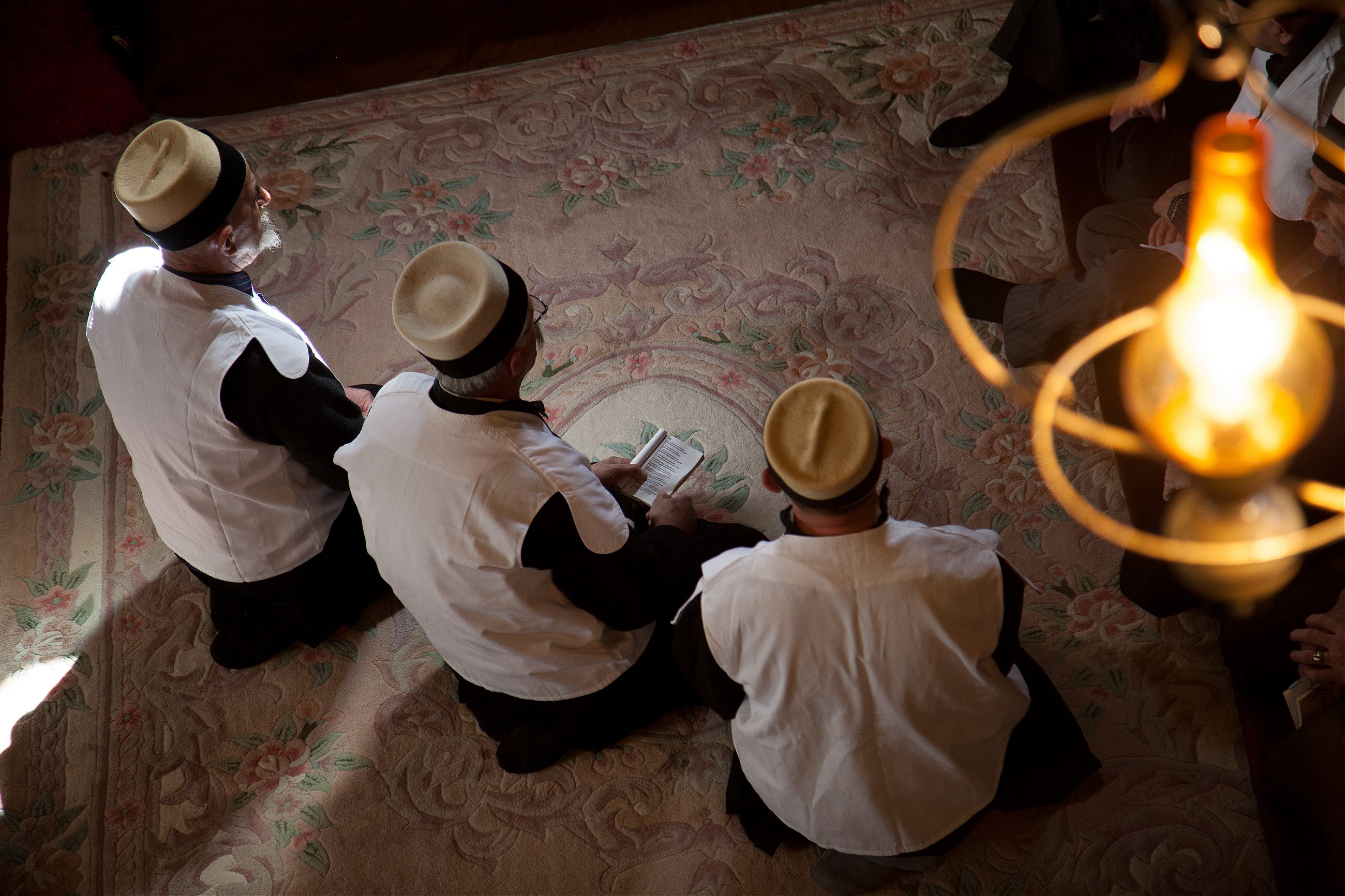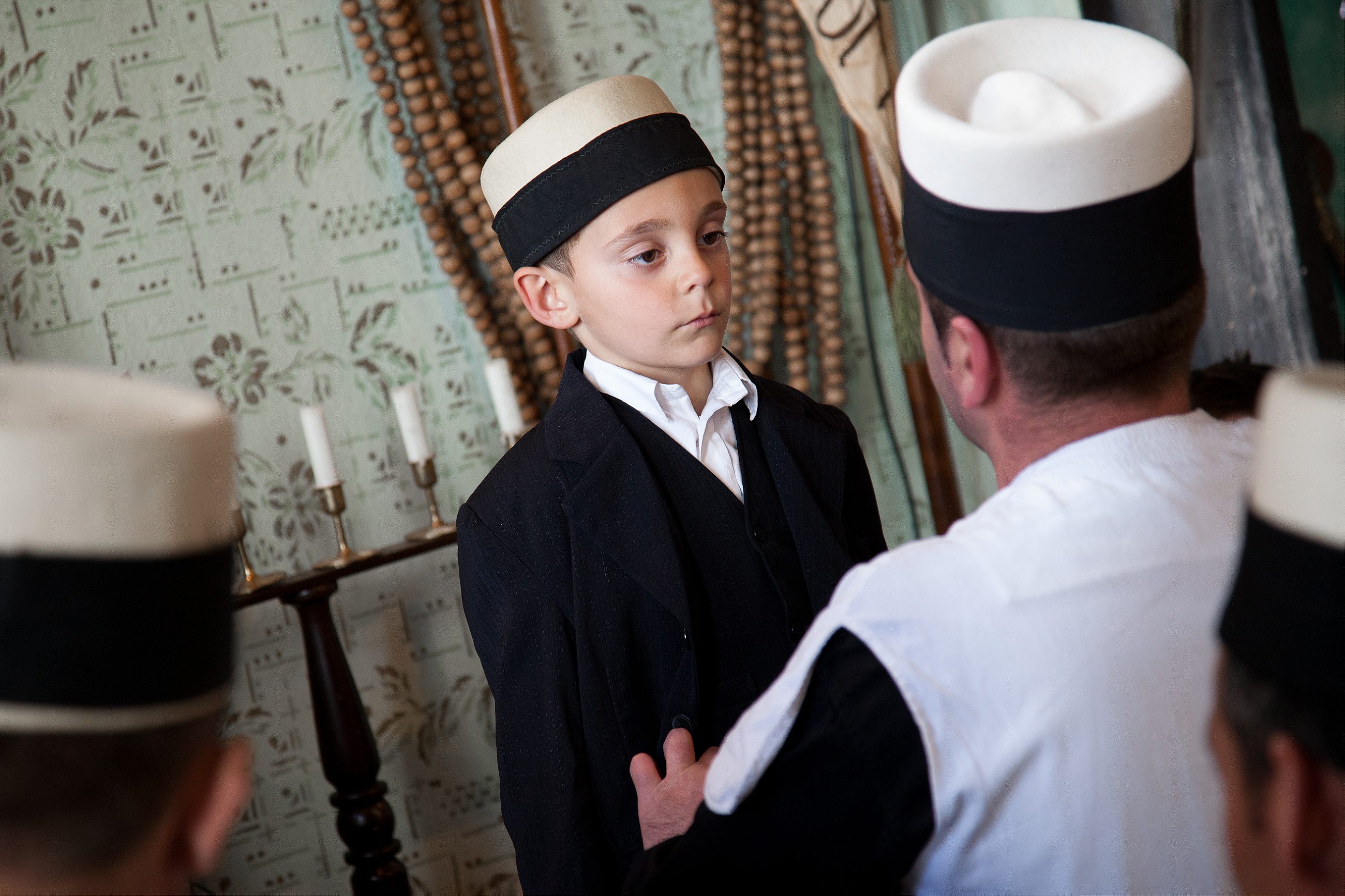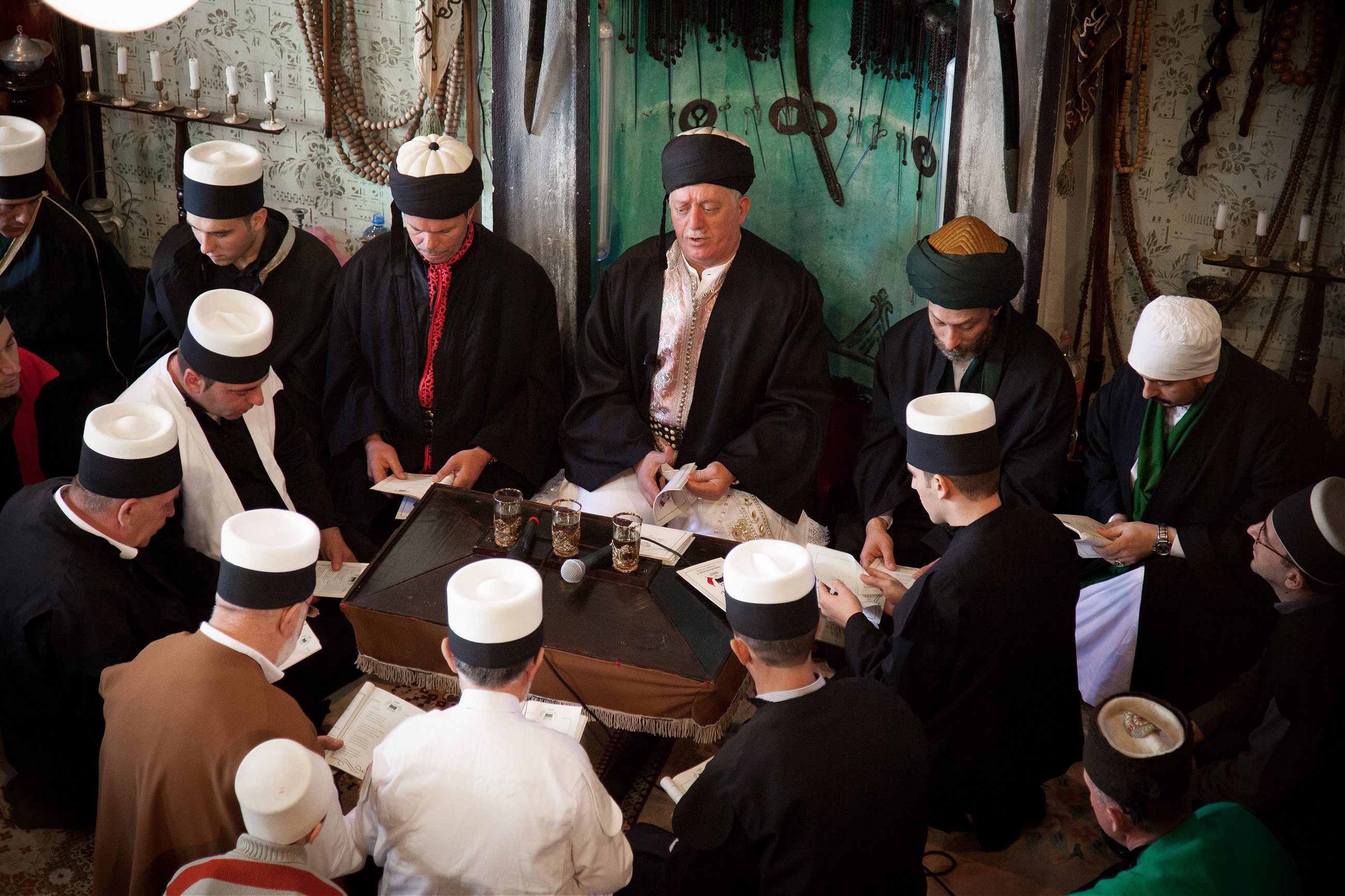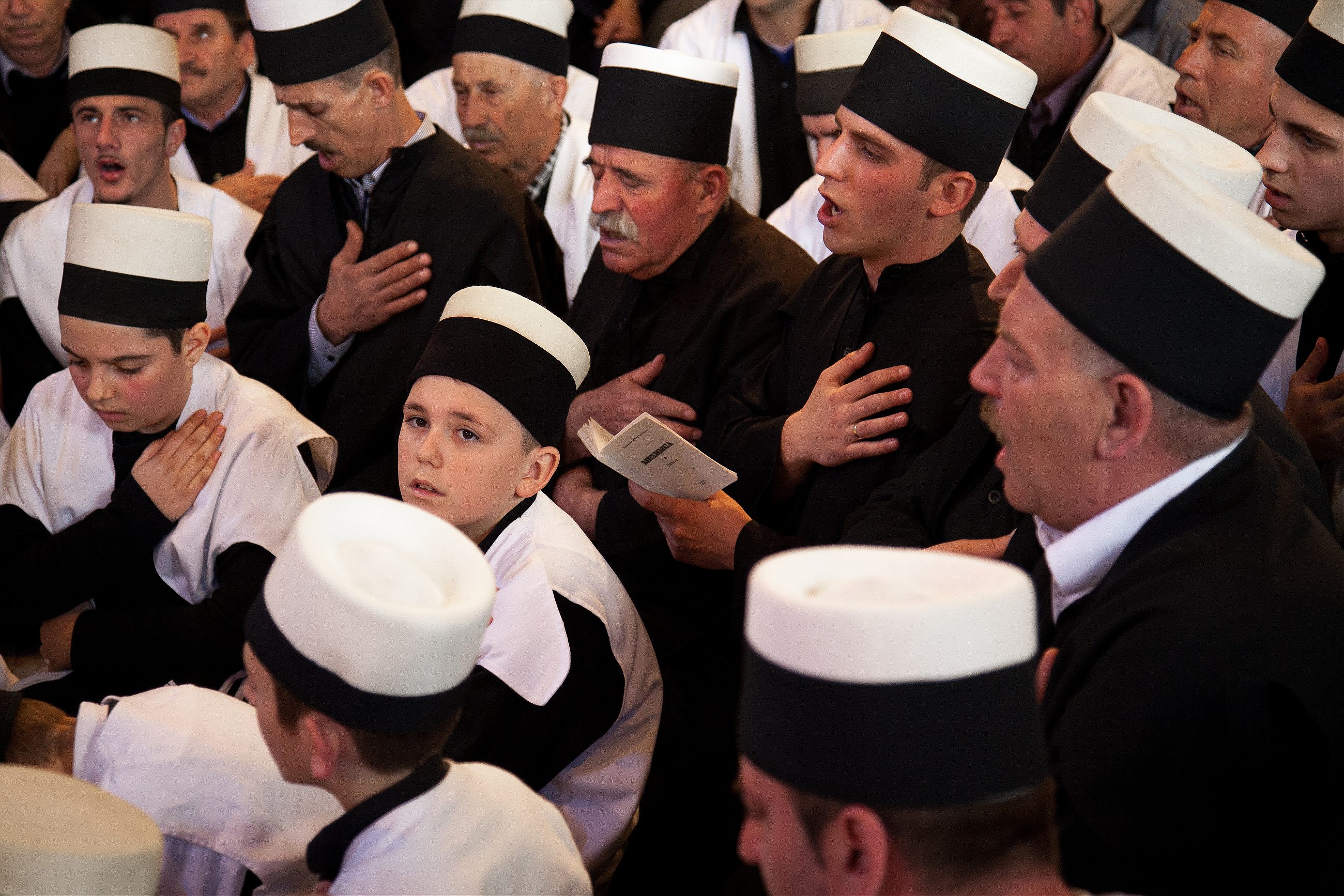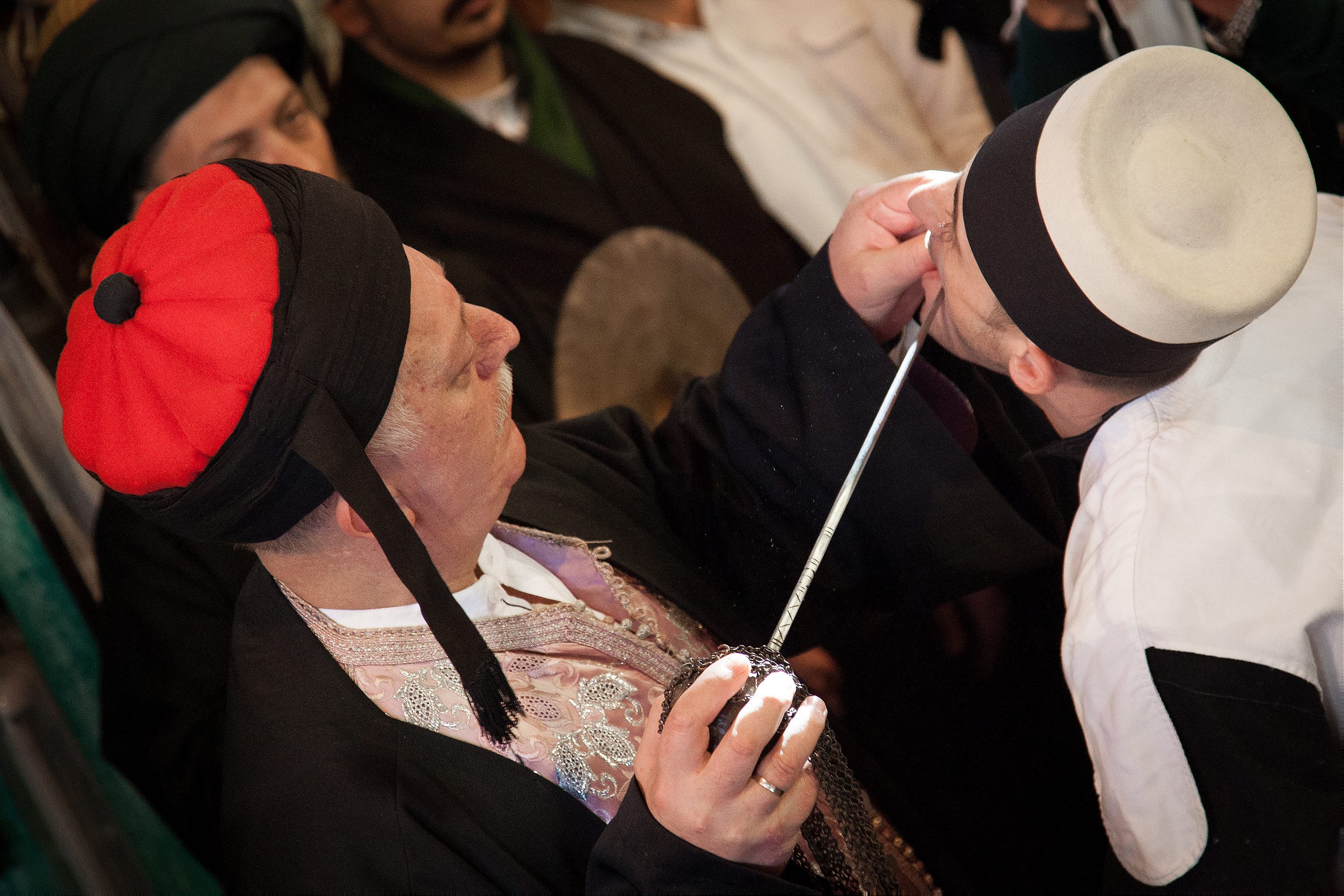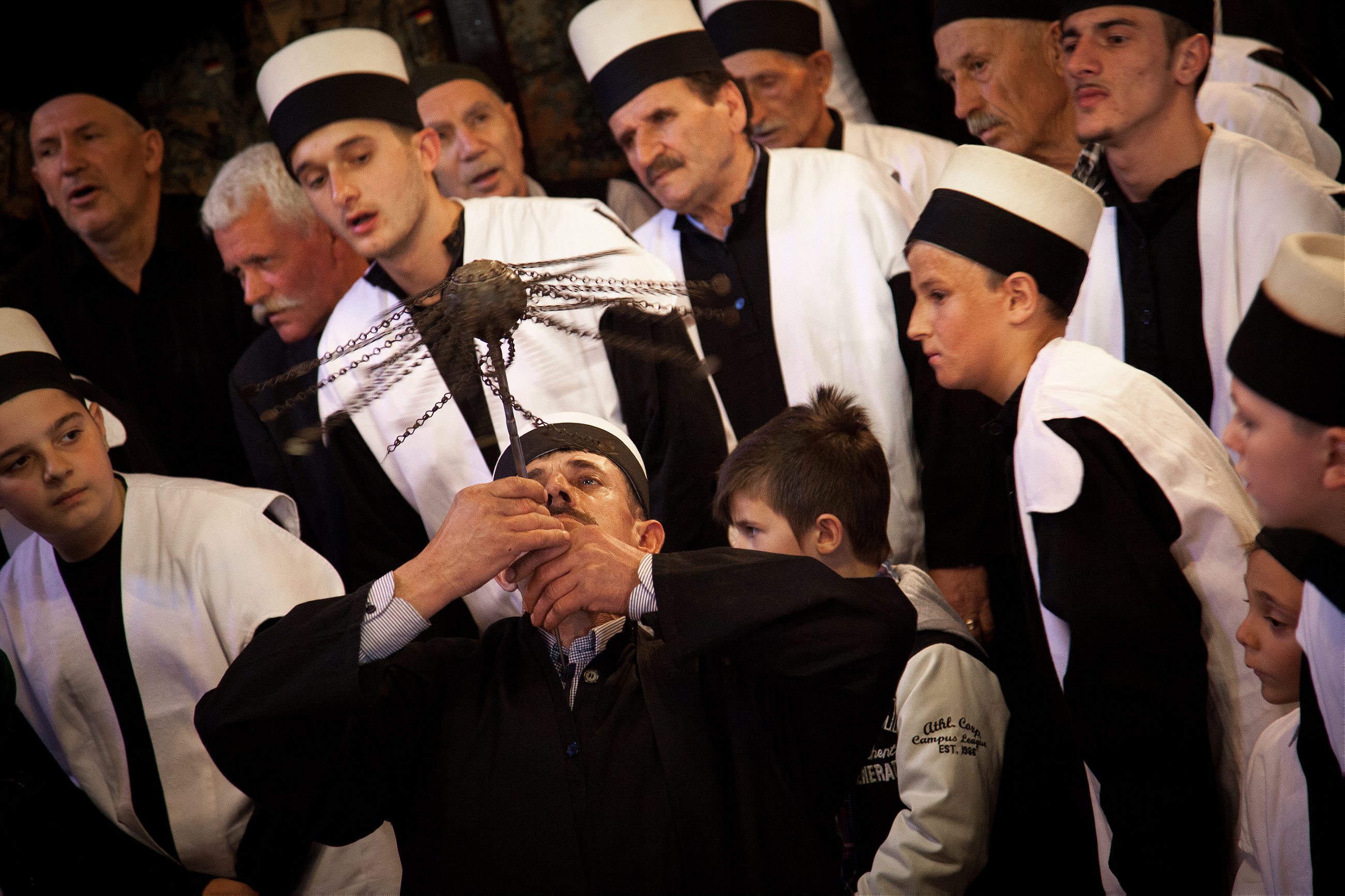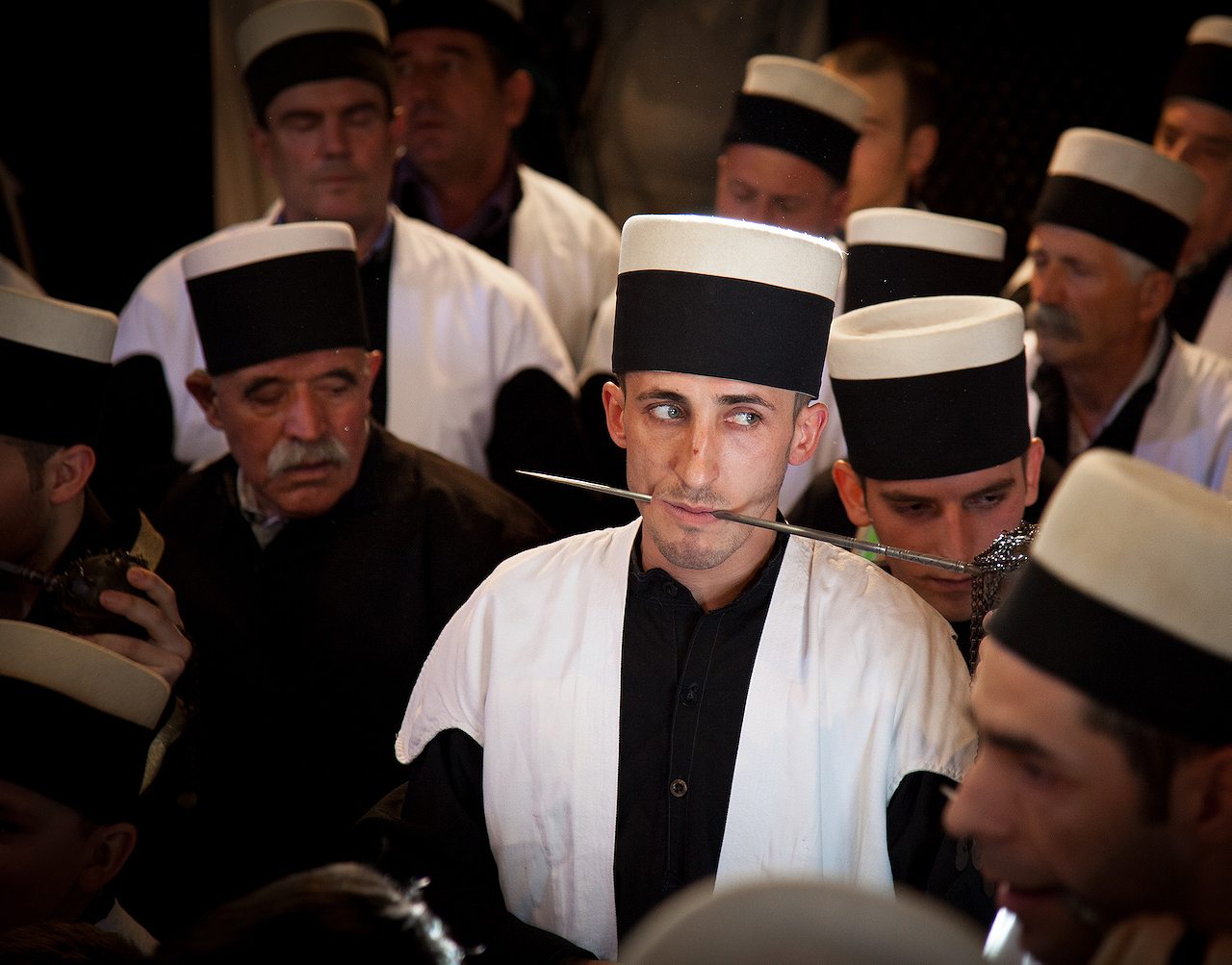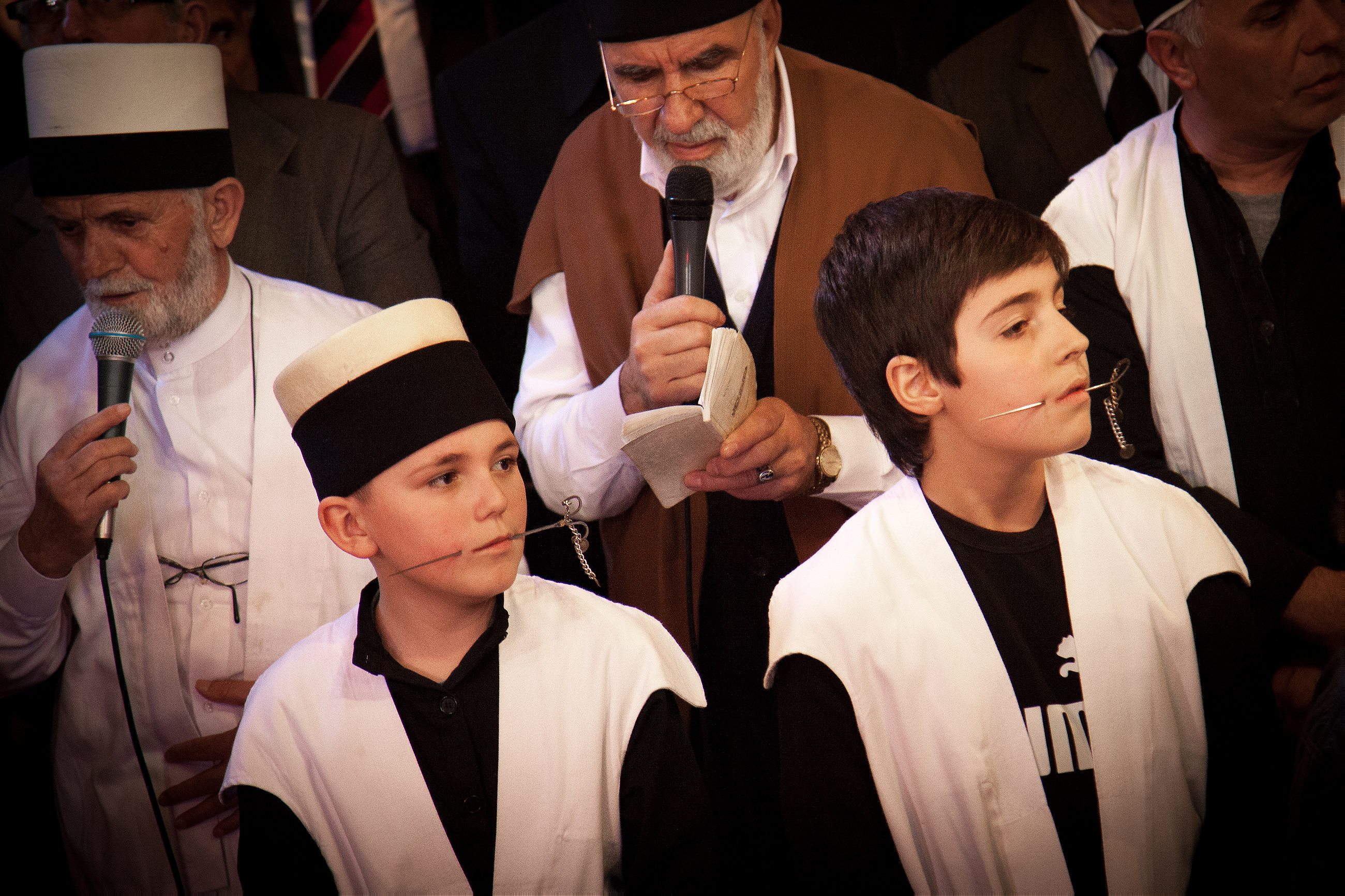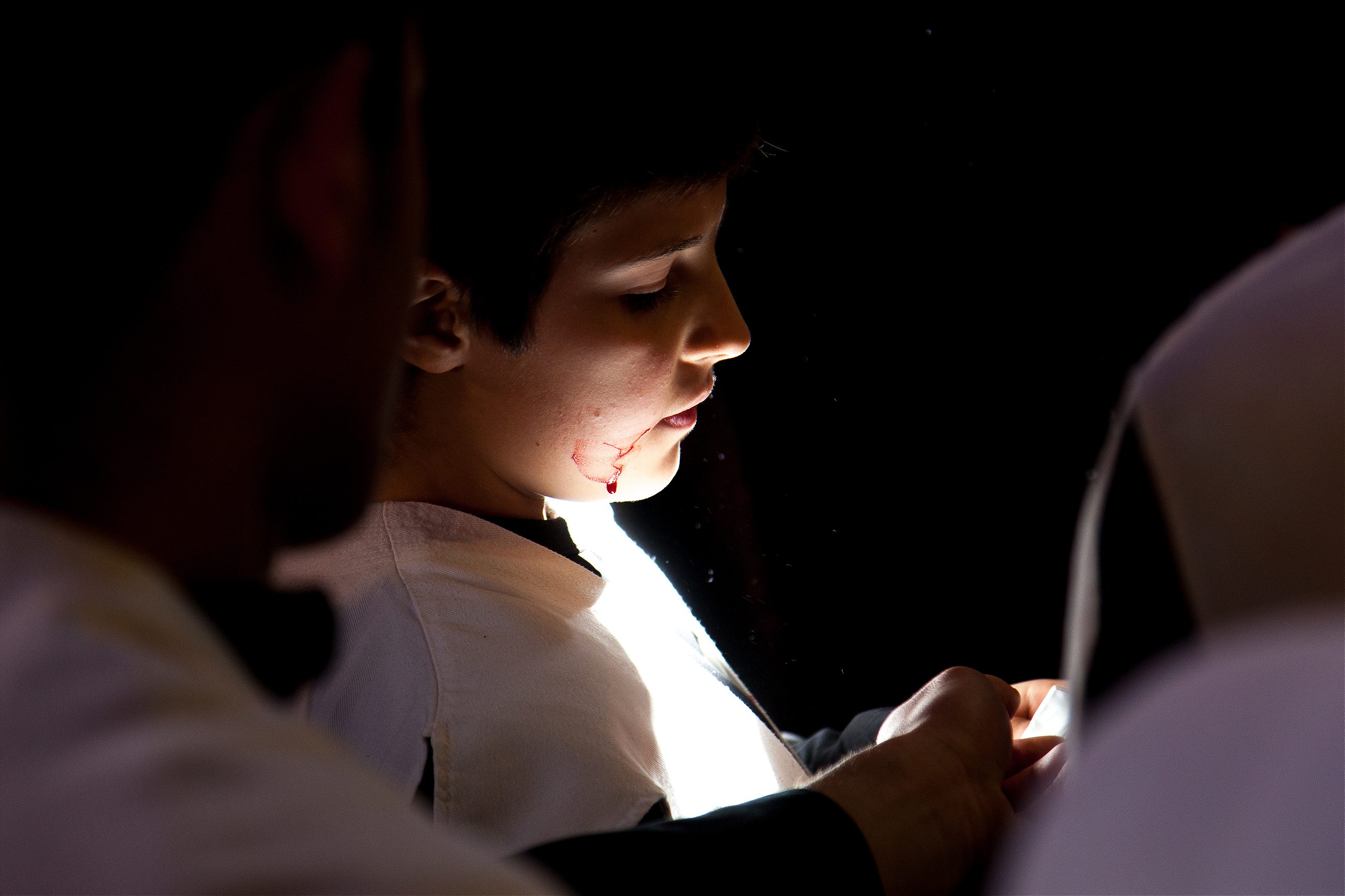During new year celebrations, members of the Sufi order of Rifa’i pursue a highly painful form of devotion.
What is the human body after birth?” Sheikh Adrihusein Sheh asks me, cigarette in hand. I look at him silently, not knowing what to answer. “Look,” he says, taking a sip of his tea. “A body is like a jar. It is empty after birth. You need to fill it with wisdom.”
It’s March and I am in Prizren, Kosovo’s second largest city, to photograph the Sufi Dervishes of the Rifa’i order, a religious cult that was founded in the 12th century in Basra, Iraq. I was drawn by reports that to celebrate the new year, Rifa’i worshippers dance and pray until they reach a state of trance, and that they pierce parts of their bodies to get closer to god. Sheikh Adrihusein Sheh, their leader, agreed to meet with me.
The Rifa’i order is separate from the rest of the Sufi community in Kosovo, a predominantly Muslim autonomous region that seceded from Serbia. In Prizren, its members number about one hundred. “Some people go to church, others to the mosque or to a synagogue,” says the sheikh. “We go inside our tekke and there, we try to feel the presence of the almighty.”
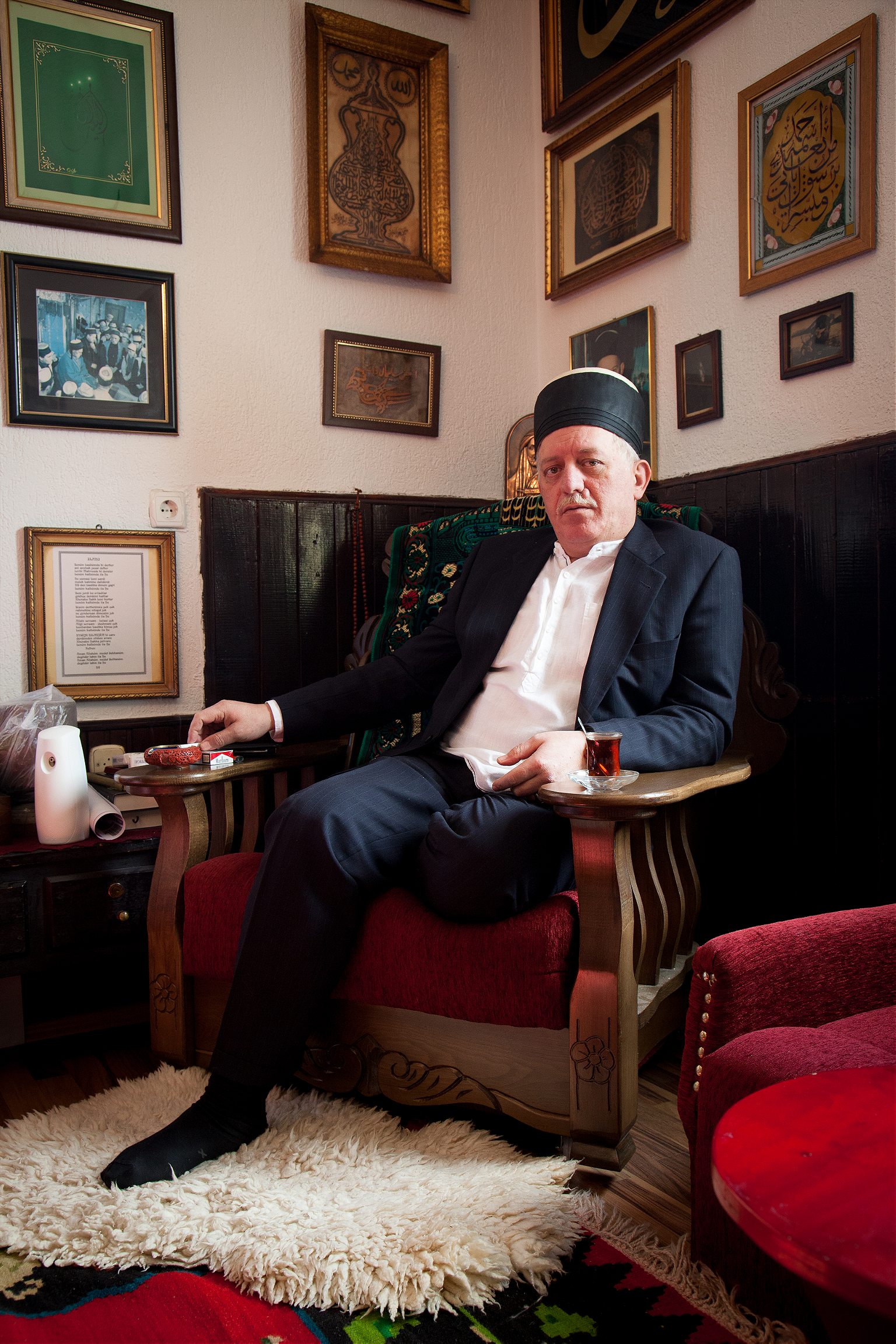
Dozens of Sufi branches have settled in Kosovo, Bosnia, and Albania throughout the years. Each is different and has its own way of performing the collective prayer. Sheikh Adrihusein Sheh allowed me to witness his congregation’s yearly dhikr. After our conversation is over, he takes me to the tekke, their holy shrine, where dozens of men are waiting. They soon start to pray and sing. They dance with their upper bodies, not moving their feet, and repeat Allah’s name again and again.
After hours of chanting and praying, the worshippers are ready to proceed with the ultimate proof of devotion: piercing their bodies with centuries-old skewers.
The sheikh prepares the instruments of varying shapes and sizes, and thinner skewers are reserved for children. The scene is intense and theatrical, and the music grows louder. He begins by perforating the cheeks of a younger devotee. More experienced men administer the skewers on themselves.
I see hardly any blood spilled and no one seems in pain. When I see the men remove the metal skewers from their flesh without flinching, I remember the sheikh’s earlier words. “Only those who manage to separate the mind from the body will be able to recognize the divine.”
